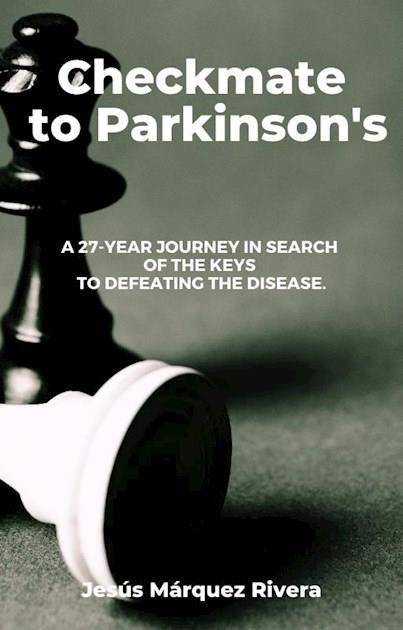(Excerpt from the book I am writing now. I hope you find it useful).
Is Parkinson's disease a lifestyle disease?
3. Antiparkinsonian lifestyle.
What took my father and I the longest to understand was that not only were there lifestyles that increased or decreased risk, but that it was possible to significantly improve the quality of life of a sick person, slow down the progression of the disease, and so on.
He could only experience certain vitamins and the immediate effect of the diet, the direct relationship between what he ate and something as easily observable and measurable as whether or not he could move the next day, whether he could just pick up the radio that was half a metre away from his hand or whether I had to give it to him....
Not only did he deprive himself of foods full of beneficial substances, but he replaced them with others that were harmful to him, so that the negative effect seemed to multiply.
His state of mind also influenced his ability to move, perhaps as much as his diet. To our eyes, it became clear day by day that Parkinson's disease was, to a large extent, a disease caused and/or aggravated by multiple deficiencies.
Although I only really understood this after my father's death, after the time spent studying to document this book.
Twenty-seven years later, I am baffled by the way I read and did not really understand what was in front of my eyes. Fortunately, my father and I wrote down many observations and experiences and those I can review now.
At the beginning of 2021, one of the things I have finally realised is that more than the accumulated experience of 18 years of illness, what really burst the bubble, what really opened our eyes, was learning about all these studies and going from seeing them as isolated and scattered elements, to contemplating the connection of all of them (even with the mysteries that persist because of the complexity of Parkinson's), their intimate and profound interrelationship. But this realisation took many years and much pain.
This possible "protocol" capable of slowing down and improving the disease could take into account several or most of these studies:
BRAKE (already mentioned)
Vitamin D (Suzuki 2013).
Coenzyme Q10 (Shults 2002).
Creatine (Beal 2003)
Antioxidants (Grimes 1988).
Physical exercise (Oguh 2014).
Omega 3 (Youdim 2000, Saugstad 2006, 2008).
Alpha lipoic acid (Araujo 2011).
Vitamin E (Bischot 1993).
Glutathione (Sechi 1996).
Green tea, EGCG extract (Mandel 2002, Levites 2003).
IMPROVEMENT
Physical exercise (Alberts 2009, 2011). 35 % improvement.
Thiamine B1 (Luong 2012, Costantini 2013: 31-77 % improvement).
NADH (Black 1986).
Riboflavin B2 (Coimbra 2003). 44-73 % improvement.
Vitamin B6 (Tan 2005).
GDNF (Gill 2005).
Glutathione (Sechi 1996: 40 % improvement).
Ketogenic diet (Vanitallie 2005). 43 % improvement.
NAC (Monti 2019).
B12 (Christine 2018).
The ketogenic diet adapted to levodopa-treated Parkinson's (protein limitation) offers great hope in neurodegenerative and other diseases (Gasior 2006). Studies by Theodore VanItallie, Richard L Veech and many other researchers (Veech 2000, 2001, 2004; VanItallie 2003, 2005), offer very interesting results such as the above mentioned 43% improvement in symptoms measured by the UPDRS scale in Parkinson's patients! A diet rich in fats and low in carbohydrates (sugars) would cause the body to seek energy from fats rather than glucose (similar to what happens during fasting), leading to the formation of ketone bodies. This could be a key element in future treatments. Any attempt to follow this diet, in its various variations, should always be under the guidance and control of a doctor. It is not an easy diet to manage well in Parkinson's disease.
